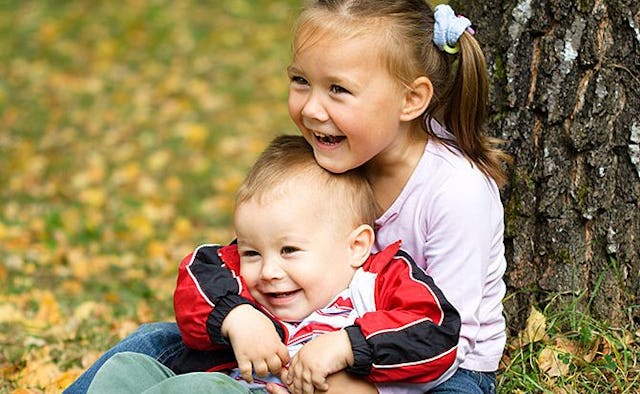Does Having an Older Sister Make Men Less Competitive?

I grew up in a family with two boys and two girls, and I can verify from personal experience that the relationship you have with your siblings affects the rest of your life, for better or for worse. Not that those relationships don’t evolve, and you along with them, but the roots run deep, and grip tightly.
But it’s the older sister-younger brother dynamic that seems to have a very specific effect. Studies done on college students in Japan indicated that men with older sisters were significantly less interested in competing for prizes or money than those without. The students were given the option of either solving mazes for points, or competing in a tournament where they had to solve more mazes than other people to get points. The ones with older sisters were much more likely to take the first option, preferring to challenge themselves rather than others.
In a second study, they offered up the same options with math problems, only the prize was more tangible: either straight cash or a tournament for it. Twenty-four percent of the men with older sisters chose the tournament, vs. 48 percent of the older-sisterless.
Studies also say that having an older sibling of the opposite gender decreases your tendency towards more stereotypical gender roles, but wouldn’t that just be about exposure? My siblings and I grew up in the ’70s, when traditional gender roles were already being challenged. My brothers are both excellent, focused fathers who didn’t shy away from birth experience details, diaper changing, or any of the other things my father was spared from having to deal with by being a young father in the 1960s.
As for competitiveness specifically, since it’s influenced by testosterone, it makes sense that having an older sister who doesn’t spur you on as much is likely to have some impact on a boy’s personality. But clearly it depends on that older sister’s personality, because I know plenty of competitive women.
Bottom line: Before you even get out into the world, the traits are stacking up. Birth order, gender order within that, age difference, it all plays a part. Long after you’ve moved out and you think you’ve grown up into your own independent person, your place in your own, original family has left its mark.
This article was originally published on